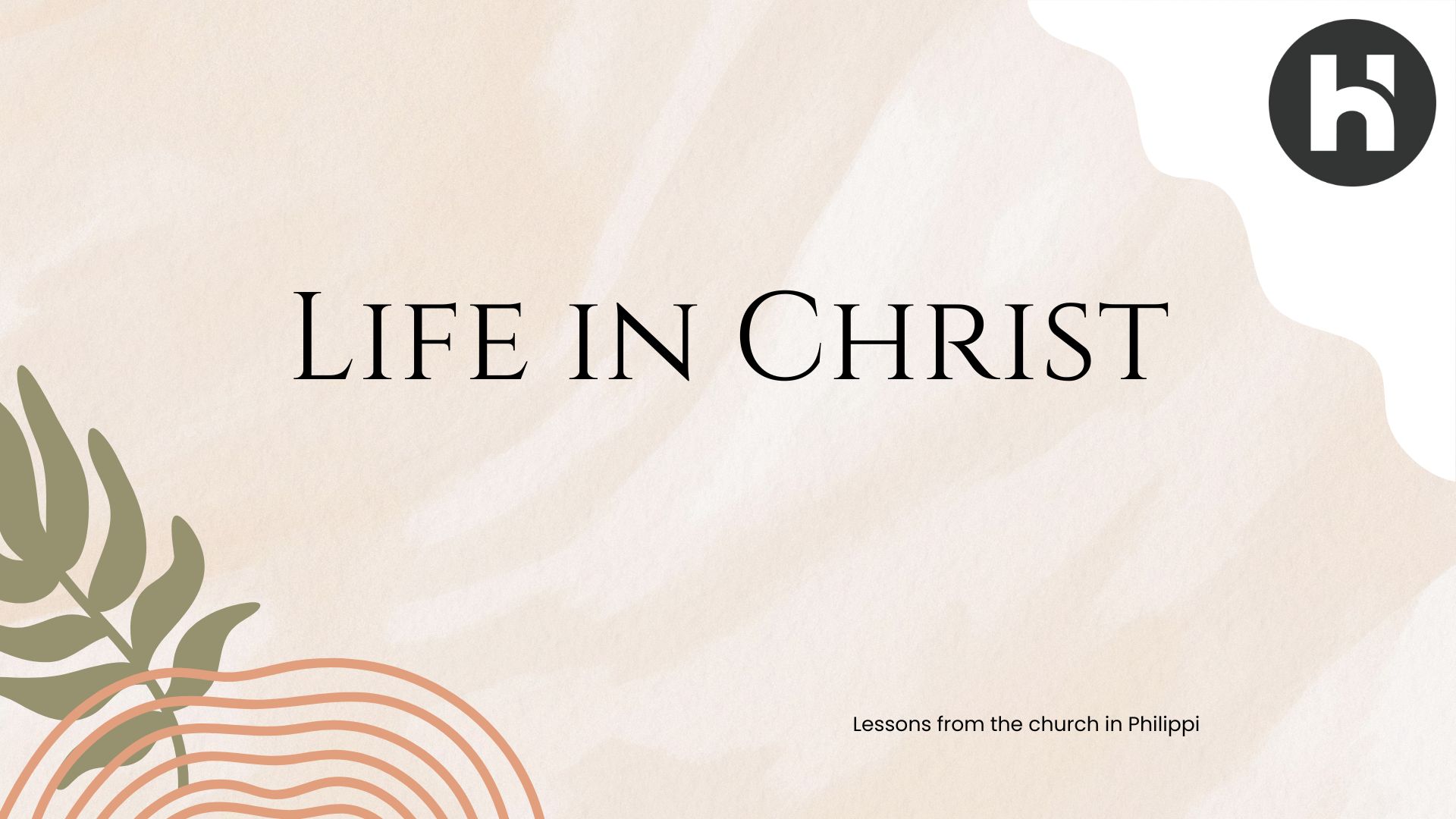It’s really starting to look and feel like fall – the changing of the leaves, the crisp autumn air, and my personal favourite, the rumble of the furnace kicking in. I find so much comfort in knowing my furnace is running. You never forget stepping from the wintery cold into the icy embrace of a dead furnace. That happened to me when I was renting a house in Citadel. I could feel a chill in the air. The temperature was dropping. So my landlord sent someone over to relit the pilot light. He told me the furnace should kick back in soon. Then he left.
Well, the furnace didn’t kick in. The temperature kept dropping. This thermostat was more like a thermometer. It could tell me it was cold, but it couldn’t do anything about it. Many of us live like that. The way we feel reflects the circumstances around us. We feel great when things are going well. It’s easy to say “God is good” when you’re reclining on a sunny beach. But when things take a turn and our circumstances are less than desirable, then our faith falters, our joy disappears, and discontentment sets in. We reflect our environment instead of being anchored to something steady. We rise and fall like the mercury in a thermometer.
For most of us, contentment is something we chase. We think it comes from our jobs, our savings, our homes, or even our schedule. And when life doesn’t go the way we planned, we feel the sting. But Paul, in Philippians 4, gives us a different picture: true contentment is not dependent on what happens to us—it’s found in Christ. Life in Christ is content in Christ. Instead of being swept along by the highs and lows of life, Paul calls us to be a thermostat. Our contentment shouldn’t react to the world around us; it should be set by Christ.
Remember where Paul was when he wrote this. He was in prison. Awaiting a judgment that could lead to death. But our passage today doesn’t sound like a complaint. It’s full of confidence, joy, and gratitude; because contentment starts with gratitude.
I rejoiced in the Lord greatly because once again you renewed your care for me. You were in fact concerned about me but lacked the opportunity to show it.
While he was in prison, a member of their church brought him a gift. It was financial support to help him continue his work while he was in prison. They had been supporting his work for a while but then for an unknown reason they stopped. When he says they “renewed” their care for him, he’s using a Greek word that means “blossom”. Like our flowers that go dormant in the cold and then came back to life when the weather changes. Their renewed care was like a flower coming back into bloom, spreading seeds, reviving their commitment to the Great Commission. This excited Paul, not just because of the gift, but because it meant the church was reengaging with the mission of God in a tangible way. They were behind his mission to preach the gospel to the ends of the earth. We have an English saying: put your money where your mouth is. That means you don’t really believe something until you invest your money into it. These disciples knew that they needed to put their money where their mouth was, and use their resources to further the gospel. And that excited Paul! Not because of the gift, but because of the heart behind it, and because it was God’s provision through them.
I know things feel tight right now, and that’s stressful. I know that it feels like our wellbeing is decided by powerful people that don’t know us, and don’t care about us, and that feels unfair. I know that there’s a lot of uncertainty about what your life will look like even a year from now, and that causes anxiety. I know it’s tempting to get caught up in the things happening to us and to forget the God we worship. But he doesn’t change. In our highs and lows he stays steady. That’s why gratitude is the starting point for contentment, because it focuses our hearts on God’s unchanging faithfulness, rather than our ever changing circumstances. And that’s good because Paul was no stronger to changing circumstances.
I don’t say this out of need, for I have learned to be content in whatever circumstances I find myself. I know how to make do with little, and I know how to make do with a lot. In any and all circumstances I have learned the secret of being content – whether well fed or hungry, whether in abundance or in need.
Notice the language here. He learned the secret to contentment. The word in Greek is the same a being discipled. It’s a process. He didn’t start here, and we don’t either. Paul likely came from a family of means. He was born a Roman citizen, which gave him privileges that most Jews didn’t have. He studied under Gamaliel in Jerusalem, one of the most renowned teachers of his time. He knew abundance. He also knew the trap that wealth leads us into. When we have more than enough we forget about where it comes from. We forget that every good and perfect thing comes from God. So we start thinking we earned this, we deserve this, and now we get to enjoy it. We forget that the Earth is the LORD’s and everything in it, and we are simply stewards for a time. So let us enjoy what God gives when he gives it.
Because Paul also knew lack. Christ never promised an easy life to those who follow him. Paul’s life was anything but easy. Hear his own words in 2 Corinthians 11:24-27:
Five times I received the forty lashes minus one from the Jews. Three times I was beaten with rods. Once I received a stoning. Three times I was shipwrecked. I have spent a night and a day in the open sea. On frequent journeys, I faced dangers from rivers, dangers from robbers, dangers from my own people, dangers from Gentiles, dangers in the city, dangers in the wilderness, dangers at sea, and dangers among false brothers; toil and hardship, many sleepless nights, hunger and thirst, often without food, cold, and without clothing.
He knew hunger, need, and deprivation. Through it all he learned the secret to contentment: to live is Christ and to die is gain. Paul’s contentment was not the result of aiming low, having luck, or living in ignorance. He was disciplined. He was focused. And he pursued the thing that matters most: life with Jesus. Faith in Christ kept him anchored when things were good, and brought him comfort when things were bad. Whether he was imprisoned or supported, his joy was steady because it was set by Christ, not by his surroundings. And it led him to write one of the most quoted verses in the Bible:
I am able to do all things through him who strengthens me.
This verse is sometimes misquoted to mean “I can do anything if I have enough faith”. That’s not what Paul is saying here. He’s not saying you can do anything, but rather that you can endure anything. The “all things” he refers to are the realities he just listed—abundance and need, fullness and hunger, comfort and difficulty. Paul is saying: I can endure all these things because Christ strengthens me.
Contentment doesn’t come from independence, whether financial, social, or political. If we’re focused on being self-sufficient, we’re focused on ourselves. That’s the exact opposite of the Christ-centered contentment we’re called to practice. True contentment flows from dependance on Christ. It is rooted in intimacy with our Creator and Saviour. When we are anchored in him, circumstances may shift, but our hearts remain steady.
Now here are some indicators that you’re on the path to contentment in Christ. First, gratitude comes easily. It’s a reflex, not a discipline. Cultivate it by reminding yourself daily of things your thankful for, which are evidence of God’s faithfulness. Next, you stop comparing yourself to others. Christ is enough, so you don’t need to be. Have a scripture ready for when you find yourself in the comparison trap. I recommend “For me, to live is Christ, and to die is gain.” Another indicator is that you live generously. Success is measured by what you give to others, not by what you keep for yourself. Lastly, as I learned in my connection group this last week, you feel peace when you should feel anxiety. You don’t worry about doing God’s job for him; instead you trust that he will come through in his timing, as he sees fit.
My furnace didn’t kick back on. So the landlord came by himself. He realized the thermostat needed replacing. Once he had done that, I could feel winter’s chill receding and the heat of gas-fired goodness filling my home. I love thermostats so much more than thermometers. Don’t rise and fall based on what’s happening to you. Be a thermostat. Steady; set by Christ; enduring whatever life throws at you, with joy, because the end of your story has already been written.
Hebrews 12 says of Jesus that “for the joy that lay before him, he endured the cross, despising the shame, and sat down at the right hand of the throne of God.” Our sin put him there, but his joy held him there, as he looked forward to the day when we will all be united with Christ. In the same way, we come to the Lord’s Table in Communion to reflect back on what Jesus did for us, so that we can look forward to the day when our faith will become sight and we will all be together with God forever. So when you’re ready come up and take the bread and the juice, remembering that these represent Jesus’ body broken for us, to take away our sin, and his blood shed for us, as a promise that he is coming back.


